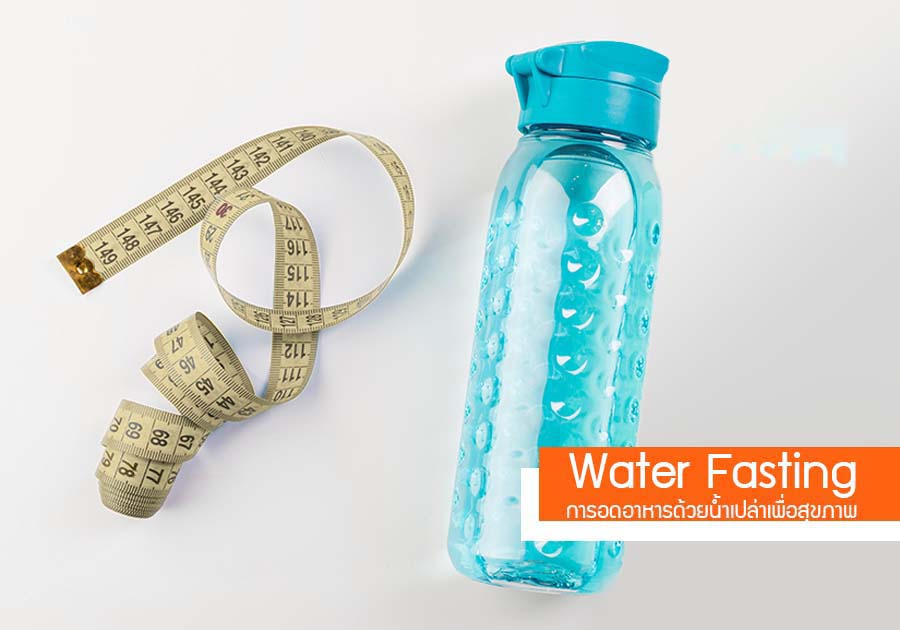

ARTICLE
Water Fasting: Abstaining from Food and Consuming Only Water for Health Benefits"

Water fasting, or the practice of consuming only water while abstaining from all food, is a form of fasting that has gained significant attention in recent years—particularly among health-conscious individuals. Many turn to this method in hopes of detoxifying the body, losing weight, or even achieving spiritual clarity. However, water fasting is not suitable for everyone and requires thorough understanding before attempting.
What is Water Fasting?
Water fasting involves refraining from all forms of food and drinking only water for a set period. Typically, this period ranges from 24 to 72 hours, although some individuals—especially those with prior experience or under medical supervision—may last for 5 to 7 days.
Potential Benefits of Water Fasting
- Stimulates Autophagy
Autophagy is the body’s process of cleaning out damaged cells and regenerating newer, healthier cells. This "cellular recycling" mechanism is believed to play a role in preventing chronic diseases such as cancer and Alzheimer’s.
- Supports Weight Loss and Blood Sugar Regulation
Fasting encourages the body to shift its energy source from glucose to stored fat, resulting in weight loss. It may also help improve insulin sensitivity and regulate blood sugar levels.
- Reduces Inflammation
Some studies suggest that water fasting can help reduce inflammation in the body—a key factor in many chronic diseases, including heart disease.
- Enhances Mental Clarity
Many people who practice water fasting report feeling mentally clearer and more focused. This may be due to the brain functioning more efficiently when it is not directing energy toward digestion.
Risks and Precautions
- Nutritional Deficiency
Extended fasting can lead to a lack of essential nutrients such as vitamins, minerals, and proteins, potentially causing fatigue, weakness, or long-term health issues.
- Hypoglycemia and Low Blood Pressure
People with underlying health conditions—such as diabetes—or those on medication may experience dizziness, fatigue, or even fainting due to low blood sugar or blood pressure.
- Metabolic Slowdown
Long-term or extreme fasting may slow down the metabolism, increasing the risk of a rebound effect ("yo-yo effect") where the lost weight is regained rapidly after the fast.
- Emotional and Psychological Strain
Water fasting may not be suitable for individuals with a history of eating disorders, as it can trigger or worsen unhealthy eating behaviors.
Who Should Avoid Water Fasting?
- Pregnant or breastfeeding women
- Individuals with chronic conditions like Type 1 diabetes or heart disease
- Children and adolescents who are still growing
- Those with a history of eating disorders
- Individuals on regular medication
Recommendations Before Starting Water Fasting
- Begin gradually with intermittent fasting to help your body adjustment
- Always consult a healthcare professional, especially if you have medical conditions or take medication
- Get plenty of rest and avoid strenuous activities
- Stay in a safe environment and, if possible, have someone monitor you during the early days of fasting
- Stop immediately if you experience symptoms such as dizziness, irregular heartbeat, or severe fatigue
Conclusion
Water fasting may offer several health benefits, such as weight loss, cellular renewal, and reduce inflammation. However, it is not a one-size-fits-all solution. Careful planning, self-awareness, and consultation with a medical professional are essential before starting. Understanding your body and practicing mindfulness during the fast can make all the difference in ensuring a safe and beneficial experience.
Source: Faculty of Medicine, Chiang Mai University
Translated by : Page Admin
